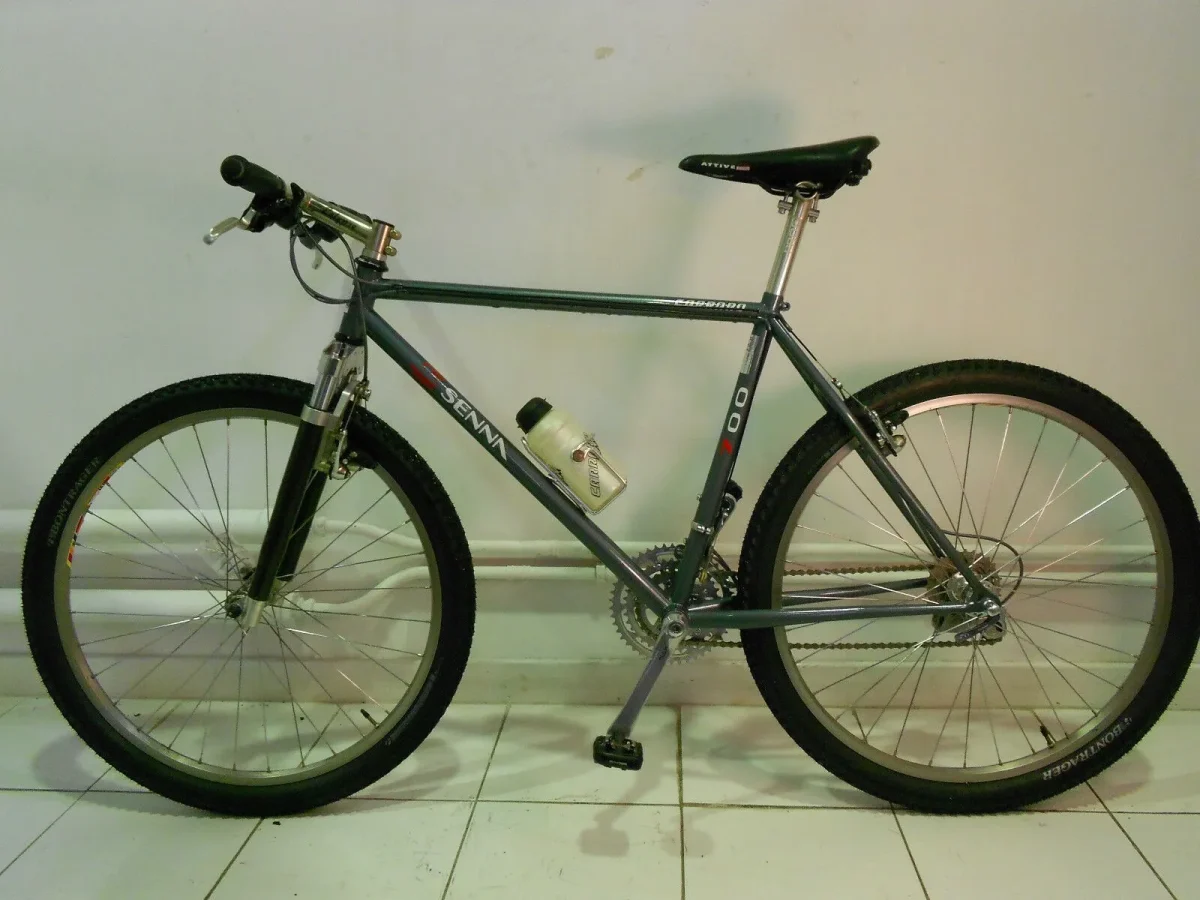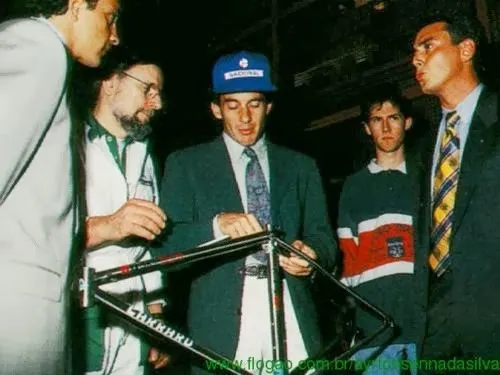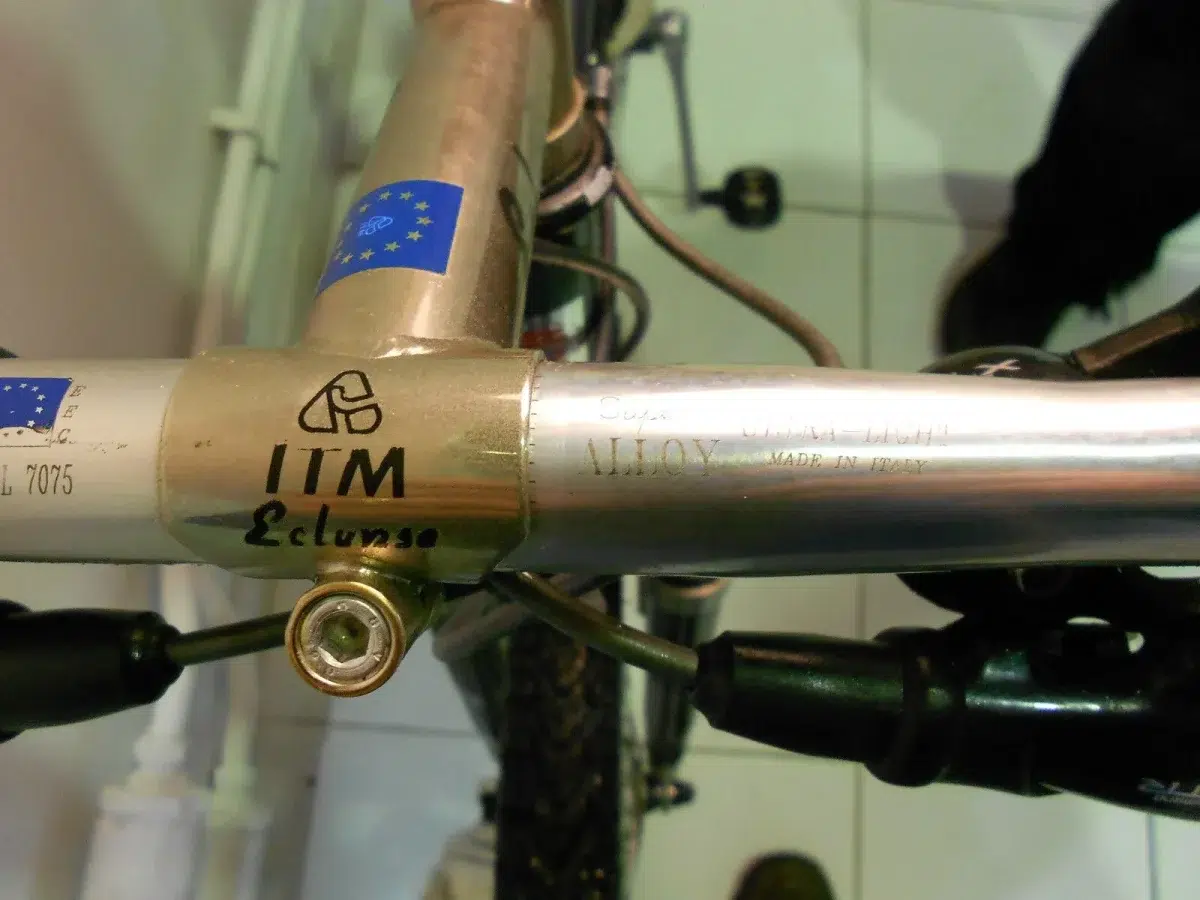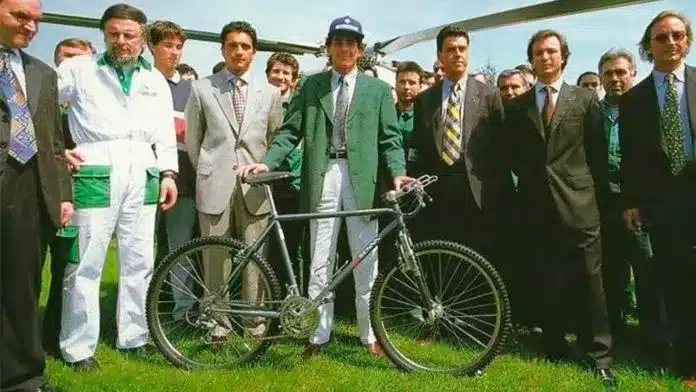Recounting May 1, 1994, we remember the tragic day when Ayrton Senna, one of the most iconic Formula 1 drivers in history, lost his life in a fatal accident at the Imola circuit in Italy.
Senna, known for his determination to make a difference, left an indelible mark not only as a driver but also as a visionary. In the 1980s, under the guidance of Nuno Cobra, he stood out by incorporating cycling into his physical preparation, a pioneering practice that revealed his constant quest for innovative methods.
A few days before the tragic accident, Senna unveiled his commercial vision to the world by launching a line of bicycles in partnership with the renowned Italian brand Carraro Cicli. The perfectionism that characterized him was reflected in the four planned models: Senna 330, aimed at the female audience; Senna 440, an entry-level mountain bike; Senna 550, a full-suspension mountain bike, and the top-of-the-line Senna 770, intended for competitions and valued at $4,500 at the time.

The extraordinary aspect is that Senna not only lent his name to these bicycles but also meticulously oversaw every detail of the project. He was not just a track icon but also an enthusiast and a leader in technological approval and marketing strategies related to the Senna bicycles.

In addition to bicycles, Senna expanded his brand to other luxury and sophisticated products, including Tag Heuer and Hublot watches, Ducati motorcycles, Audi cars, and boats. His foray into Germany, visiting the Carraro Cicli factory in Ingolstadt before his fateful accident, demonstrates Senna’s commitment to quality and excellence.

In a press statement in Padua, Italy, dated April 28, 1994, Carraro Cicli expressed pride and satisfaction in being part of Ayrton Senna’s project—a partnership that stands as a testimony to the passion and innovation Senna brought not only to the tracks but also to the world of bicycles.



